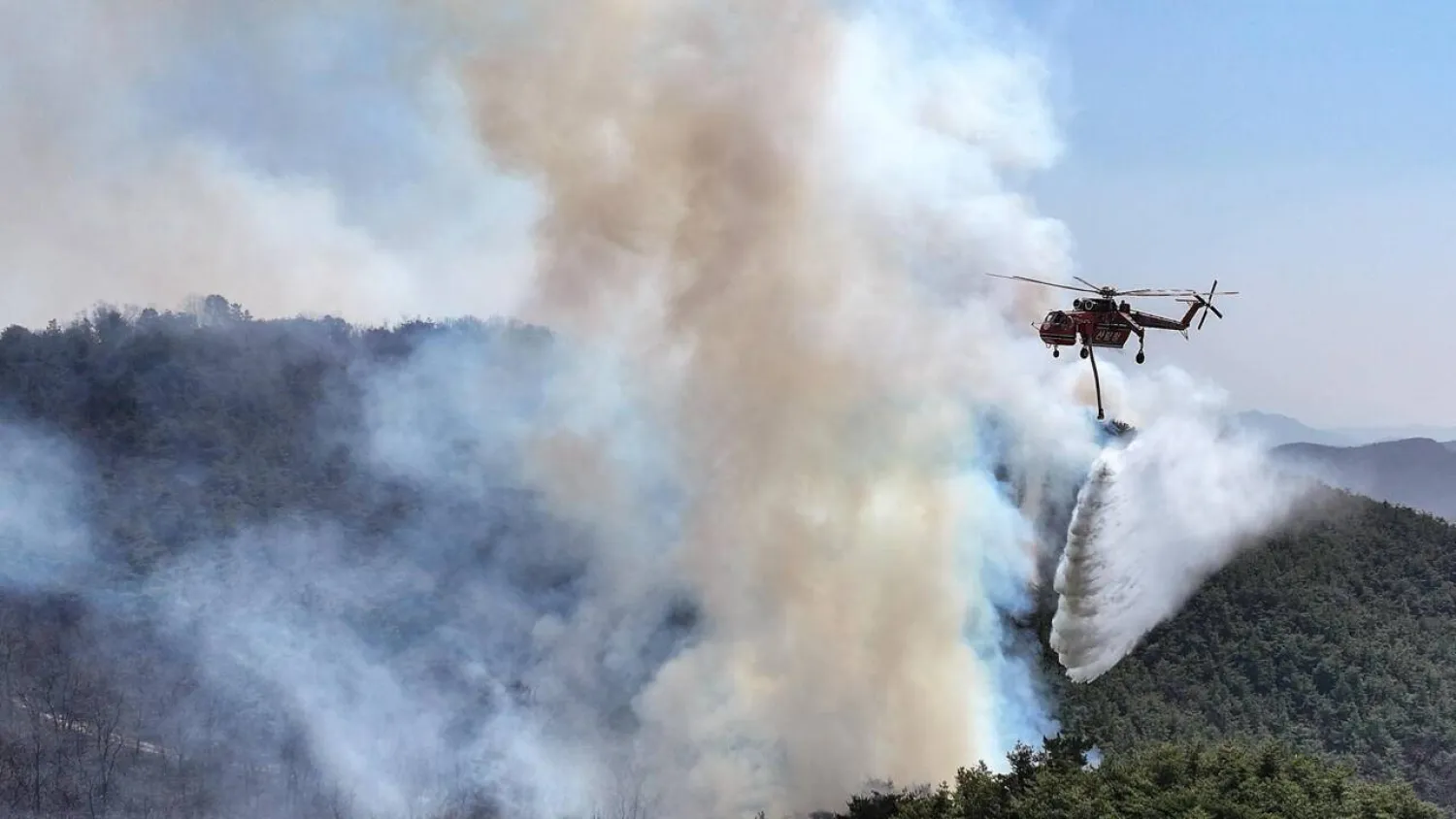South Korean authorities said Monday they would deploy dozens of helicopters and thousands of firefighters and soldiers as they struggle to control multiple wildfires in the southeast, which have been burning for days.
Four people have been killed so far, with officials warning that high winds and rising temperatures were hindering efforts to put out the blazes, AFP reported.
In Uiseong, nearly 7,000 hectares (17,000 acres) of land has been affected and around 600 people evacuated, Lim Sang-seop, head of the Korea Forest Service, told a press briefing.
"A total of 57 wildfire fighting helicopters are to be deployed to extinguish the fire," he said, adding that more than 2,600 fire fighting personnel -- including soldiers -- would be mobilized "to respond with all their might".
The fire had been partly contained but was still burning as of Monday afternoon.
The forest agency has issued "severe" fire warnings, its highest level, in multiple locations, including North and South Gyeongsang provinces, Busan and Daejeon.
A major wildfire claimed four lives over the weekend in Sancheong county, in South Gyeongsang province, about 250 kilometers (155 miles) southeast of Seoul.
That fire was also partly contained by Monday -- but still burning.
The government declared a state of emergency in the affected regions, citing "the extensive damage caused by simultaneous wildfires across the country".
Prime Minister Han Duck-soo, who was reinstated as acting president earlier Monday, visited the Central Disaster and Safety Countermeasures Headquarters, urging authorities to work together "until the wildfires are completely extinguished".
"It is a truly heartbreaking incident," he said, adding that he would meet people affected by the fires later Monday.
The leader of the main opposition Democratic Party, Lee Jae-myung, urged authorities to "mobilize all means at their disposal to quickly and safely suppress the fires" and take further measures to prevent any additional wildfires.
Other phenomena such as forest fires, droughts, snowstorms and tropical storms can result from a combination of complex factors.









